Yuri Pardi incorporates geometric blocks into Monument graduate fashion collection
Graduate shows 2015: garments appear to be carved from stone in University of East London graduate Yuri Pardi's Minimalism-influenced fashion collection.
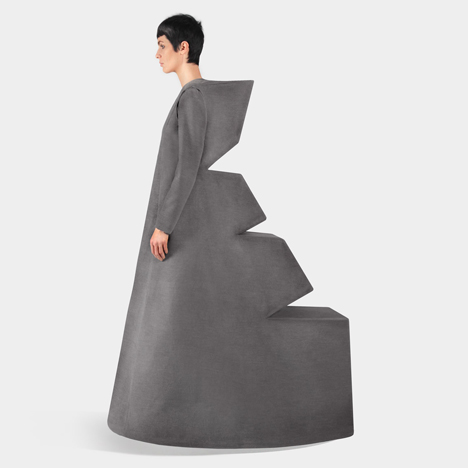
Pardi showed his Monument collection during UEL's catwalk show on Sunday, as part of Graduate Fashion Week held at London's Old Truman Brewery.
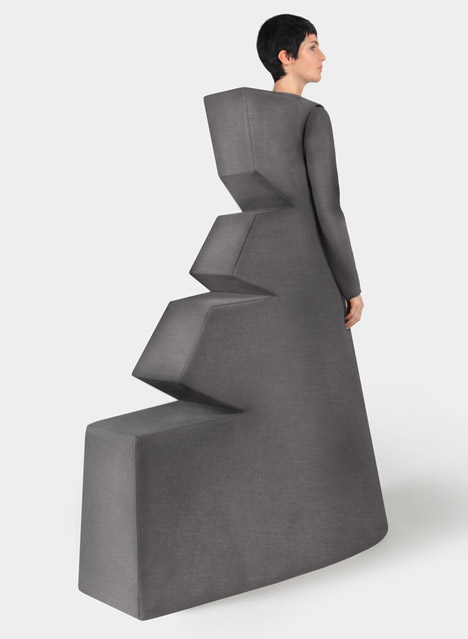
His grey wool garments are intended to extend parts of the body to create minimal, angular forms. The rigid volumes that protrude from the back of each outfit are created by foam sheets tucked into pockets underneath the clothing.
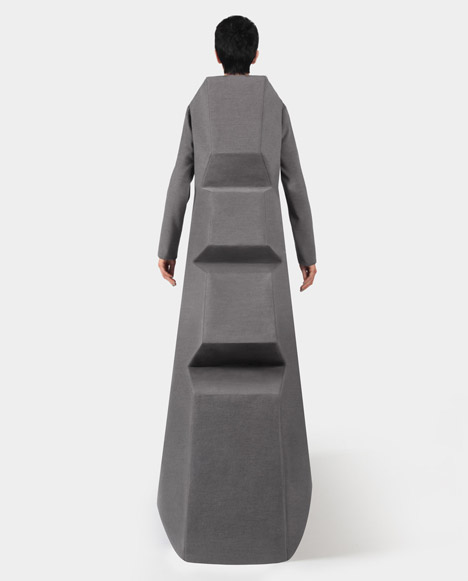
"I designed garments that morph from the shapes of the body into 'pure' geometrical shapes," Pardi told Dezeen.
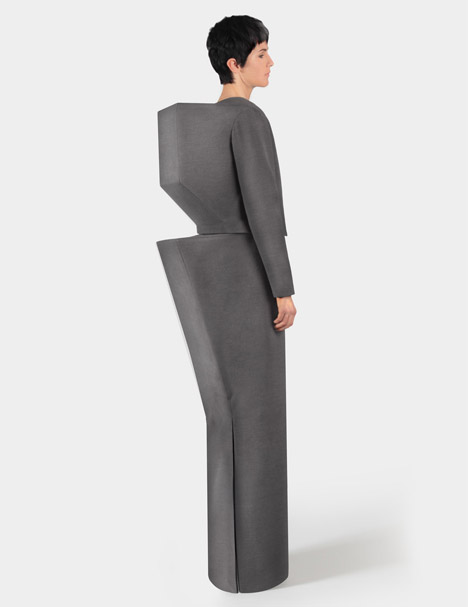
"I wanted to create a collection that could show that reduction and Minimalism are far from boring, and can be just as powerful as other visualities without being as loud," he said.
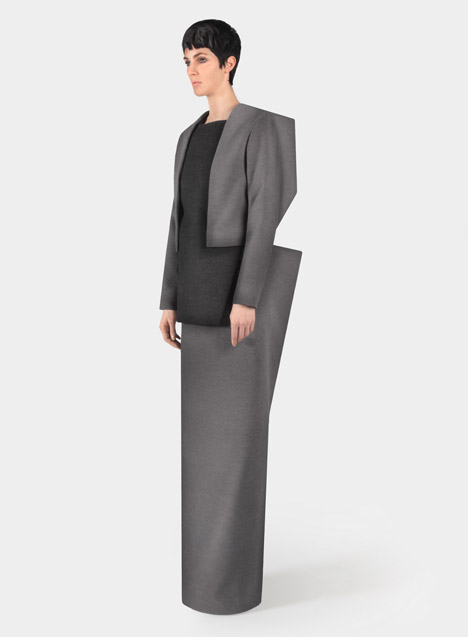
The most dramatic example is a basic dress extended backward with bulky squarish blocks, which are reminiscent of the armoured fins of a Stegosaurus.
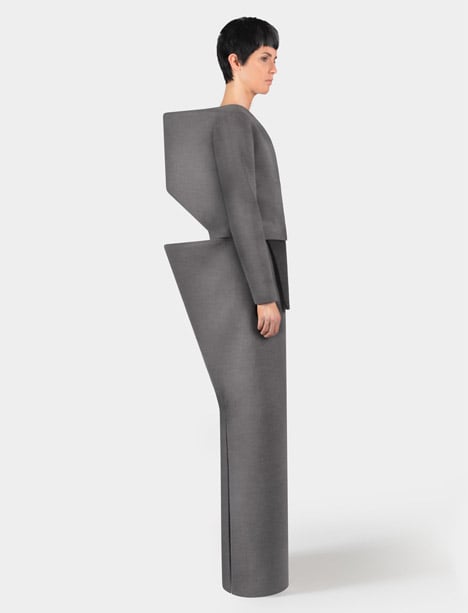
Worn over a long-sleeved top, the floor-length dress only has two seams that run from front to back down the edges of the blocks.
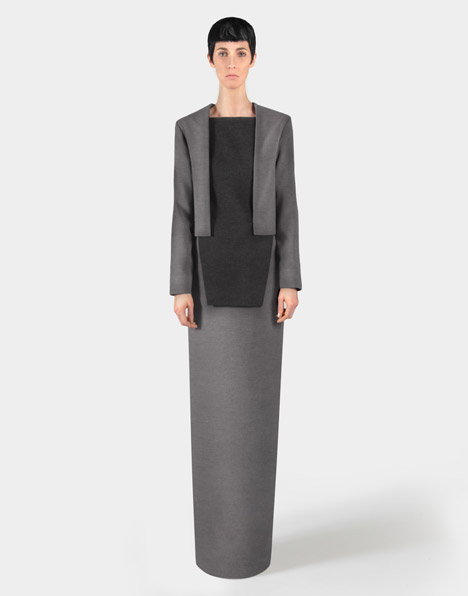
"The challenge was to identify, on the flat pattern cutting, the moment when the traditional lines of tailoring proceed into the shapes of a flattened polyhedron and still keep the seams to a minimum," said Pardi.
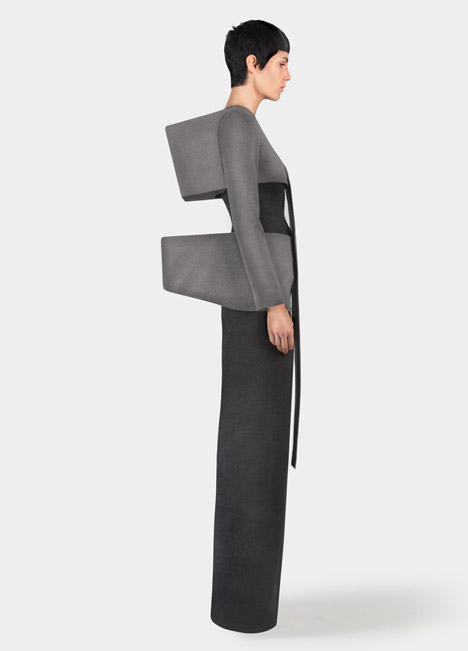
In another outfit, two rectangular protrusions – one from the shoulders and one from the hips – are worn over a dark dress with a straight silhouette.
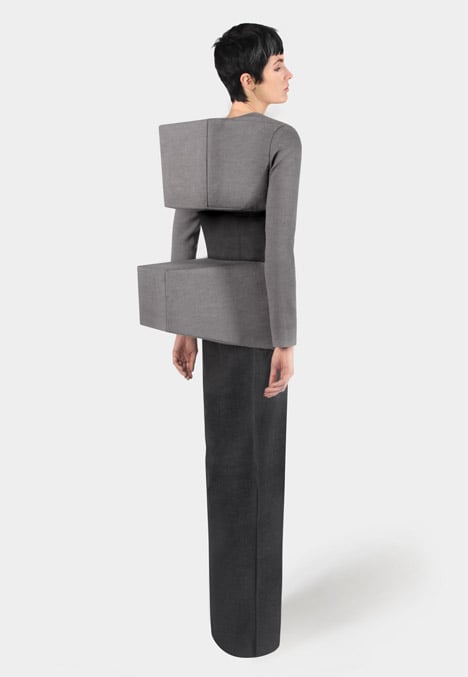
A similar outfit pairs a light-toned jacket and skirt, both with additions incorporated into the back that are not visible from the front.
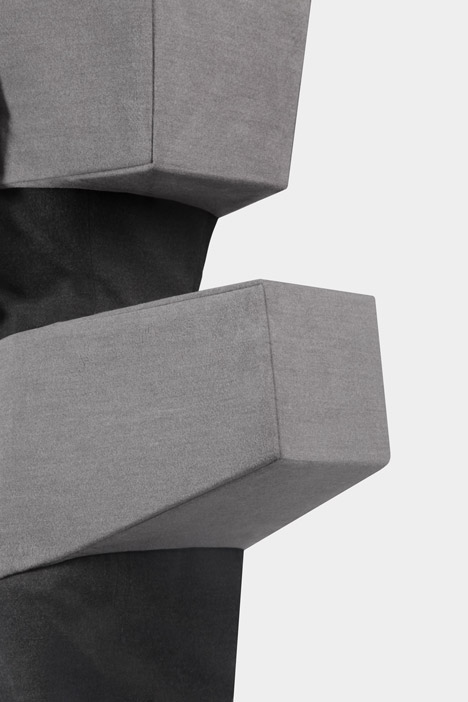
Menswear in the collection includes a top with a straight vertical fastening offset on the front, which has an element with a triangular profile protruding from its upper back.
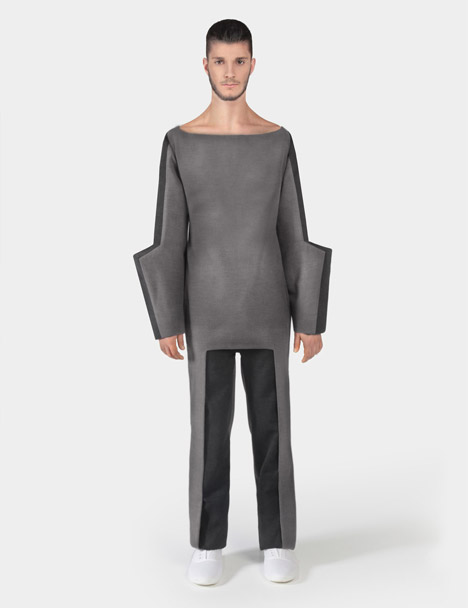
The garment also has sleeves that angle out at the elbow, highlighted with a darker shade.
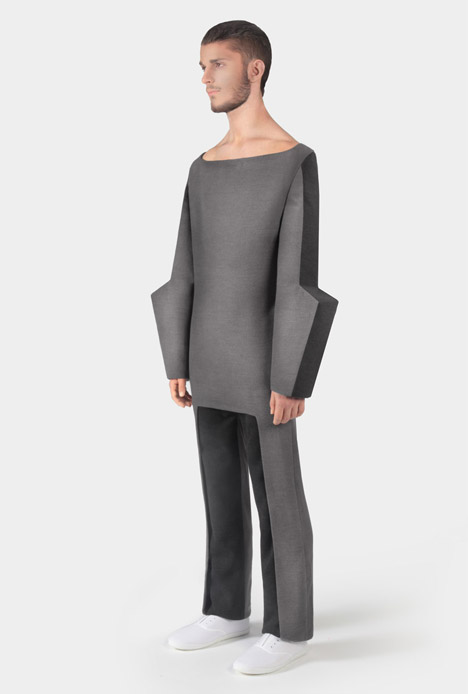
The top is paired with trousers where the lighter material frames a rectangle of dark fabric on the inner legs and around the crotch.
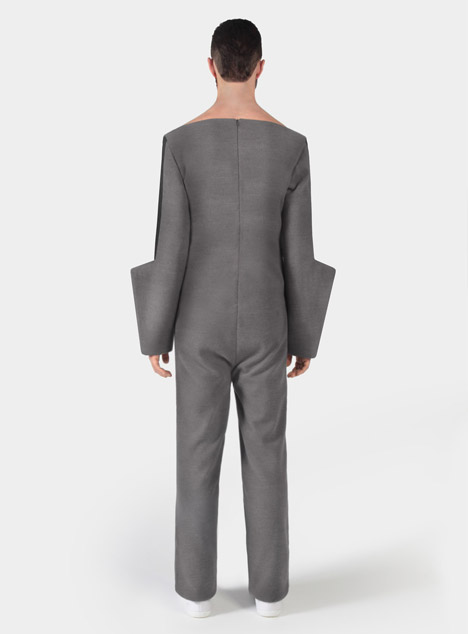
This motif is replicated on a men's jumpsuit that also features the same angular sleeves.
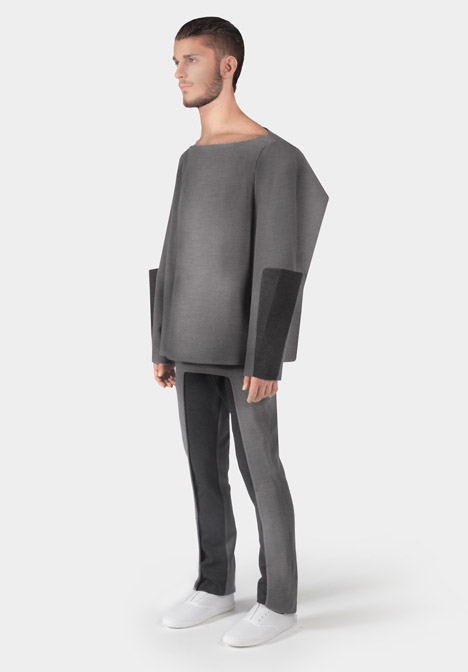
Another wide-necked top has two volumes extended out from its back, separated by a triangular slice.
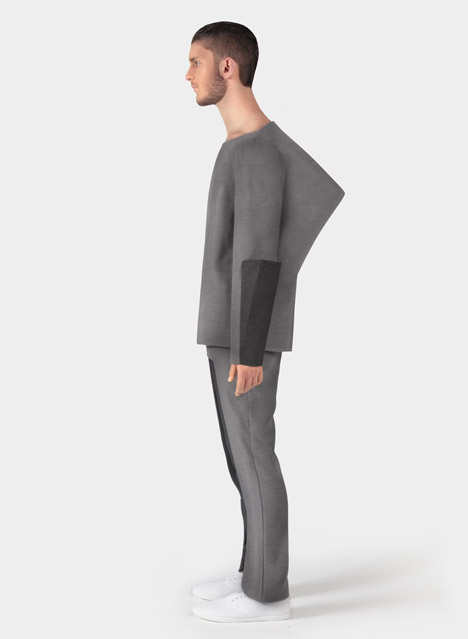
Two rectangular flaps of dark fabric cover the front and back of the pair of trousers worn in combination.
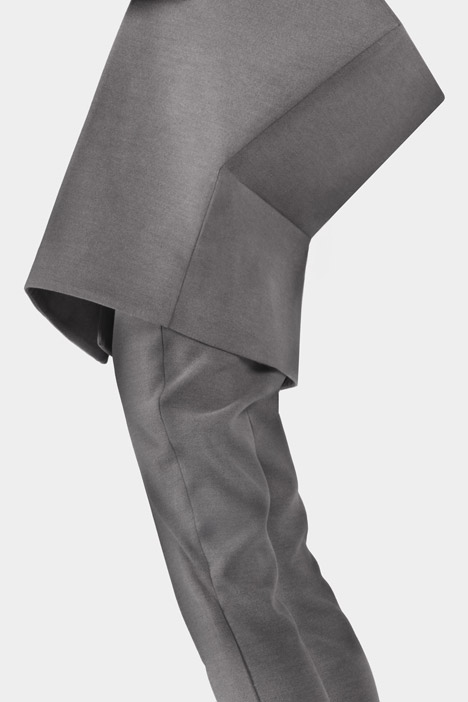
Influenced by the words of German artist Gerhard Richter, who said that grey "makes no statement whatever", Pardi produced the entire collection using two shades of the same grey wool.
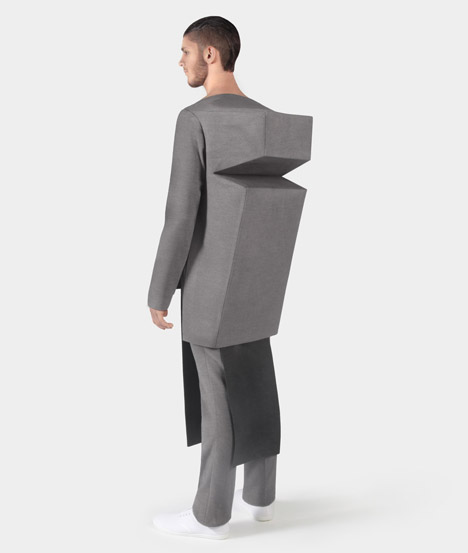
"Making the whole collection in grey forces the eye to notice and find interest in the slight variations in light and shade that come with the shapes," said Pardi.
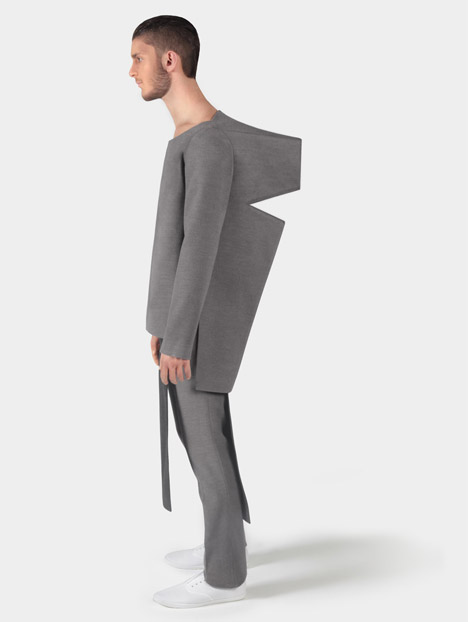
To create the garments, the Brazilian-born designer researched Minimalism across architecture, art and fashion, as well as Communist and religious uniforms, to trace common themes and reasons for the style.
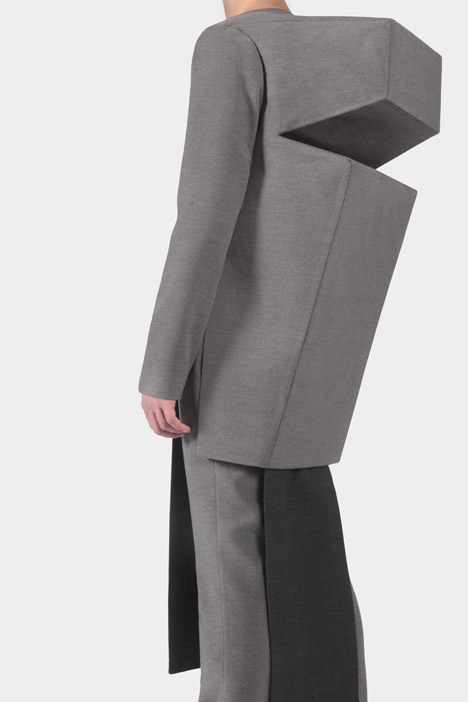
"This reinforced my stance that today Minimalism is not just a wonderful way of expression but, above all, a necessity," Pardi said. "Undeniably, the world has become visually cluttered and the application of a Minimalist aesthetic could start a change of mindset towards reduction and simplification."
Photography is by Eric Phillips.